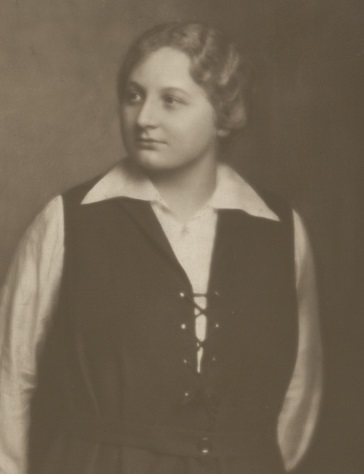Picture

Courtesy
source: National Library of Israel
Hebrew-Name
אניטה מילר כהן
Biography
Anitta Müller-Cohen (née Rosenzweig) was born on 6.6.1890 in Vienna and died on 29.6.1962 in Tel Aviv. Born into a well-to-do Viennese merchant family, Anitta was brought up in a prosperous, assimilated home. Even in her youth, she became interested in social work and in the women’s movement. Anitta managed to continue her public involvement and at the same time raise her four children. After the outbreak of World War I, she founded the organization ‘Soziale Hilfsgemeinschaft Anitta Müller’, which ran several social service institutions (such as tea and soup kitchens) for homeless people, children, mothers and refugees. She was particularly committed to Jewish refugees from Galicia and Bukovina. At the same time, she became involved in Zionism and politics, joining the Jewish National Party in Vienna and becoming one of its leading members. Besides her social and political engagement, Anitta Müller-Cohen published a vast number of articles in various Jewish and Gentile newspapers. She was appointed to the first City Council of Vienna after World War I, in 1918–1919. In the twenties, she continued her social, political and Zionist activities, visiting Palestine several times, and also the U.S.A., where she addressed the opening session of the American Jewish Congress in Chicago in 1925. She was also involved in the Jewish women’s movement and attended the first World Congress of Jewish Women in Vienna in 1923 and the second one in Hamburg in 1929, when she was elected as one of the vice-presidents of the newly founded World Federation of Jewish Women. In those years, together with Nadia Stein, she founded the ‘Women's International League for Peace and Freedom’. Anitta Müller-Cohen and her family moved from Vienna to Luxembourg and London and finally, in 1935, to Tel Aviv, where she continued her social activities. During and after World War II she concentrated her efforts on children and new immigrants, particularly those from Austria, establishing a special service for Austrian refugees, the Hitachdut Oley Austria (Association of Austrian Immigrants). In 1936 she founded the Women’s Social Service (Sherut Nashim Sozialit) and played a prominent role in the Mizrahi Women’s Organization. In the 1950s, she left the Mizrahi movement and joined the Herut party. She attended several Zionist congresses, and at the twenty-fourth Congress in 1956 was elected a delegate-at-large to the Greater Actions Committee. In her last years she lived a very secluded life, due to a serious illness. In 1965 a home for Austrian Jews was named after her in Ramat Hen.
Mother
Sophie Rosenzweig (born Schnabel)
Father
Samuel Rosenzweig, a merchant
Marriage/Children
First marriage with Arnold Müller (born 1881), a merchant. They had one daughter. Second marriage with Samuel Cohen (1892–1969), a zionist merchant. They had three daughters.
Age at Migration
45
Year of Migration
1935
Chronics
Domiciles
Networks
Archival Materials
Tel Aviv municipality archives; Central Zionist Archives, Jerusalem
